You are here
New Releases
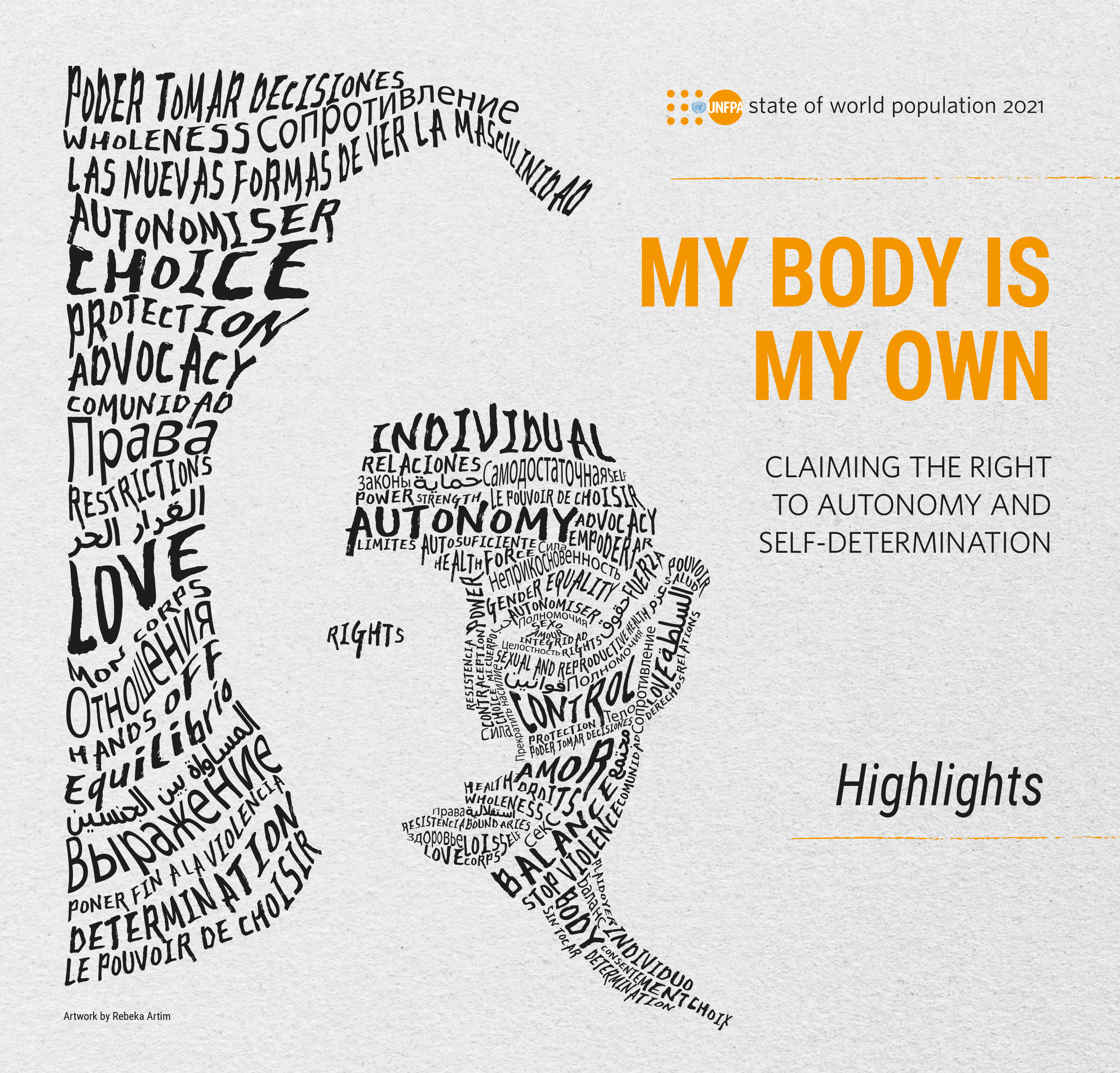
MY BODY IS MY OWN
Bodily autonomy means having the power and agency to make choices over our bodies and futures, without violence or coercion. This includes when, whether or with whom to have sex. It includes when, whether or with whom you want to become pregnant. It means the freedom to go to a doctor whenever you need one.
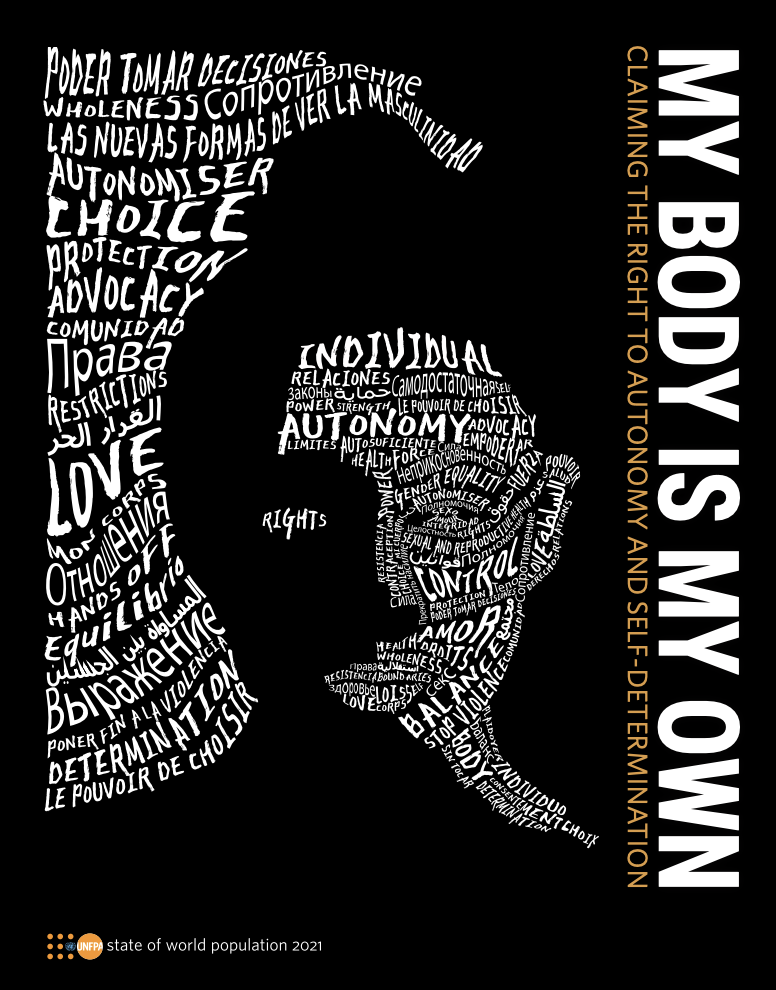
State of World Population 2021 - My Body is My Own
We have the inherent right to choose what we do with our body, to ensure its protection and care, to pursue its expression. The quality of our lives depends on it. In fact, our lives themselves depend on it.
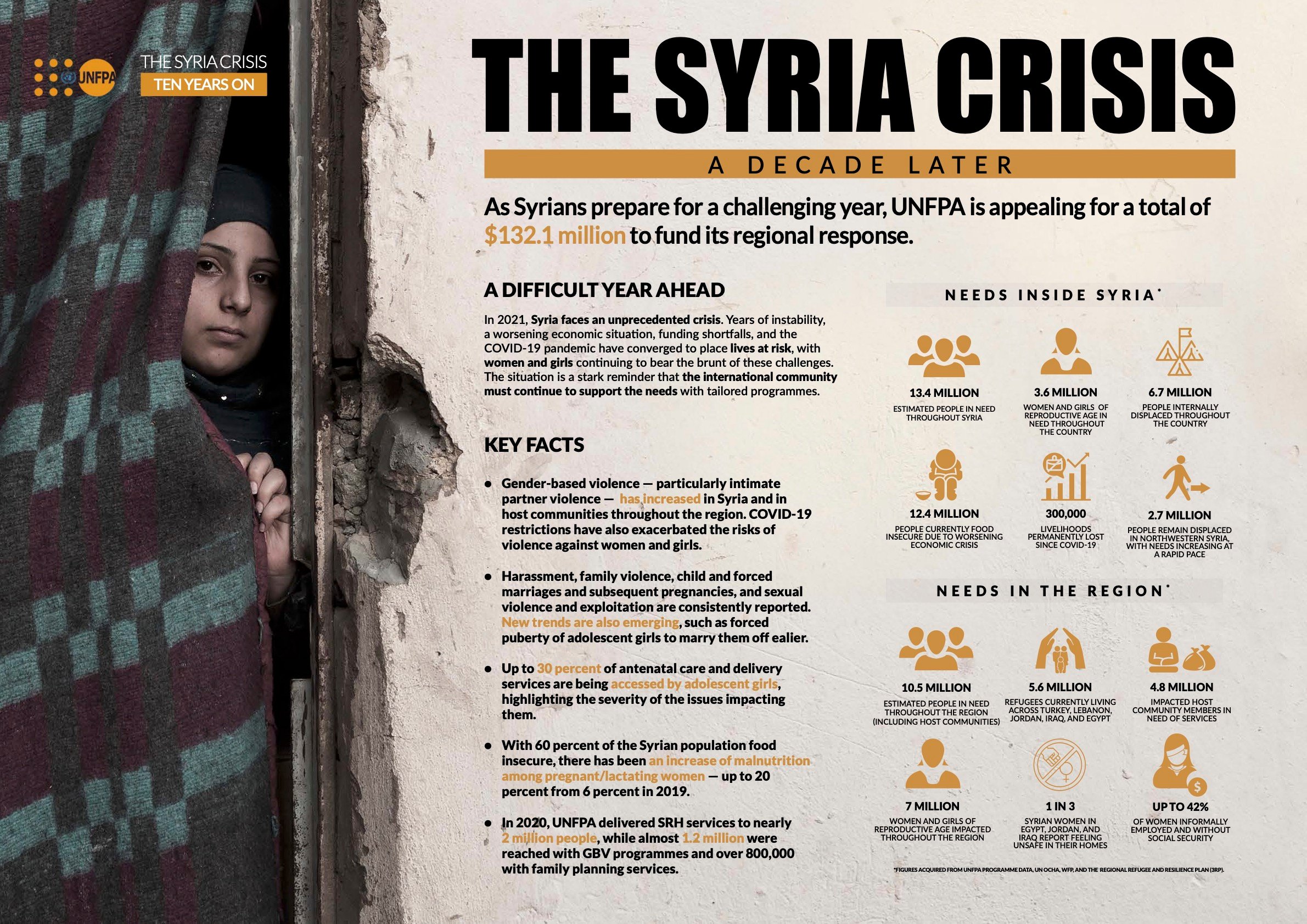
Syria Crisis: 10 Years On Fact Sheet
In 2021, Syria faces an unprecedented crisis. Years of instability, a worsening economic situation, funding shortfalls, and the COVID-19 pandemic have converged to place lives at risk, with women and girls continuing to bear the brunt of these challenges. The situation is a stark reminder that the international community must continue to support the needs with tailored programmes.
This fact sheet provides an overview of the crisis 10 years on and the escalating needs on the ground, both inside Syria and throughout the region. The fact sheet also provides information on UNFPA’s priorities and funding requirements for 2021.
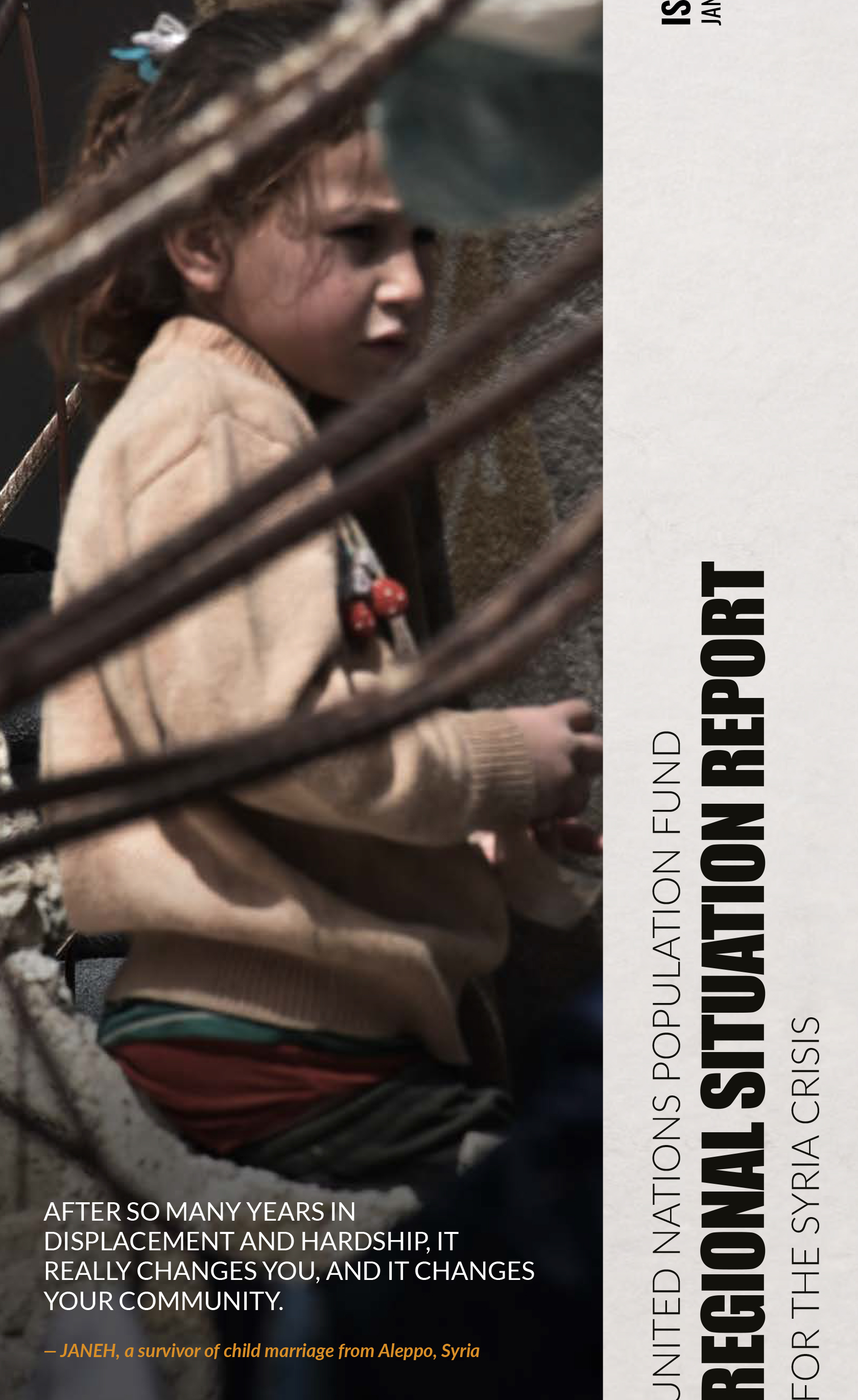
Regional Situation Report for the Syria Crisis - January 2021
In March 2021, the Syria crisis will pass the ten-year mark, with the situation worse than it has been in years. The crisis region, which spans the Whole of Syria, Turkey, Lebanon, Jordan, Iraq, and Egypt, continues to face a multitude of challenges, particularly in light of the recurrent waves of COVID-19 infections that continue to exacerbate existing challenges. A decade into this protracted crisis, people in need continue to endure the cumulative effects of years of instability, the risks of which are even higher due to the impacts of a far-reaching economic crisis.
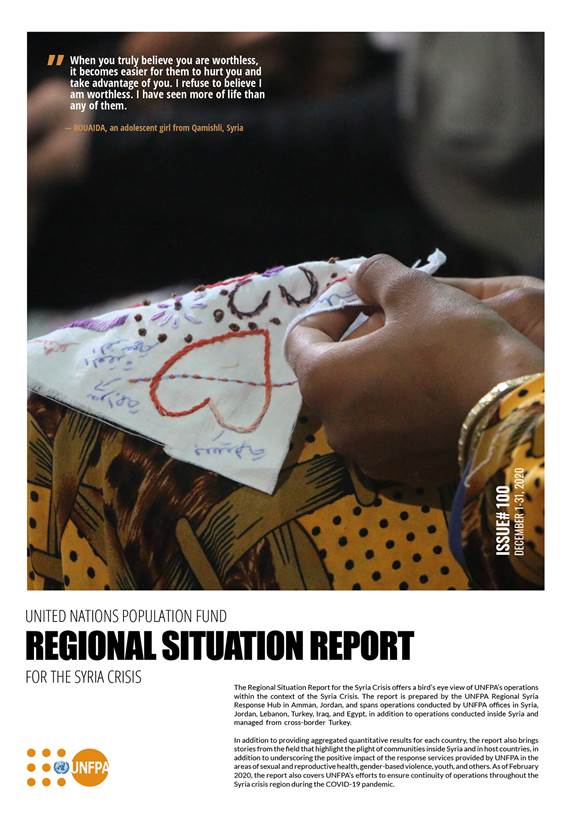
UNFPA Regional Situation Report for the Syria Crisis - December 2020
The Regional Situation Report for the Syria Crisis offers a bird’s eye view of UNFPA’s operations within the context of the Syria Crisis. The report is prepared by the UNFPA Regional Syria Response Hub in Amman, Jordan, and spans operations conducted by UNFPA offices in Syria, Jordan, Lebanon, Turkey, Iraq, and Egypt, in addition to operations conducted inside Syria and managed from cross-border Turkey.
In addition to providing aggregated quantitative results for each country, the report also brings stories from the field that highlight the plight of communities inside Syria and in host countries, in addition to underscoring the positive impact of the response services provided by UNFPA in the areas of sexual and reproductive health, gender-based violence, youth, and others. As of February 2020, the report also covers UNFPA’s efforts to ensure continuity of operations throughout the Syria crisis region during the COVID-19 pandemic.
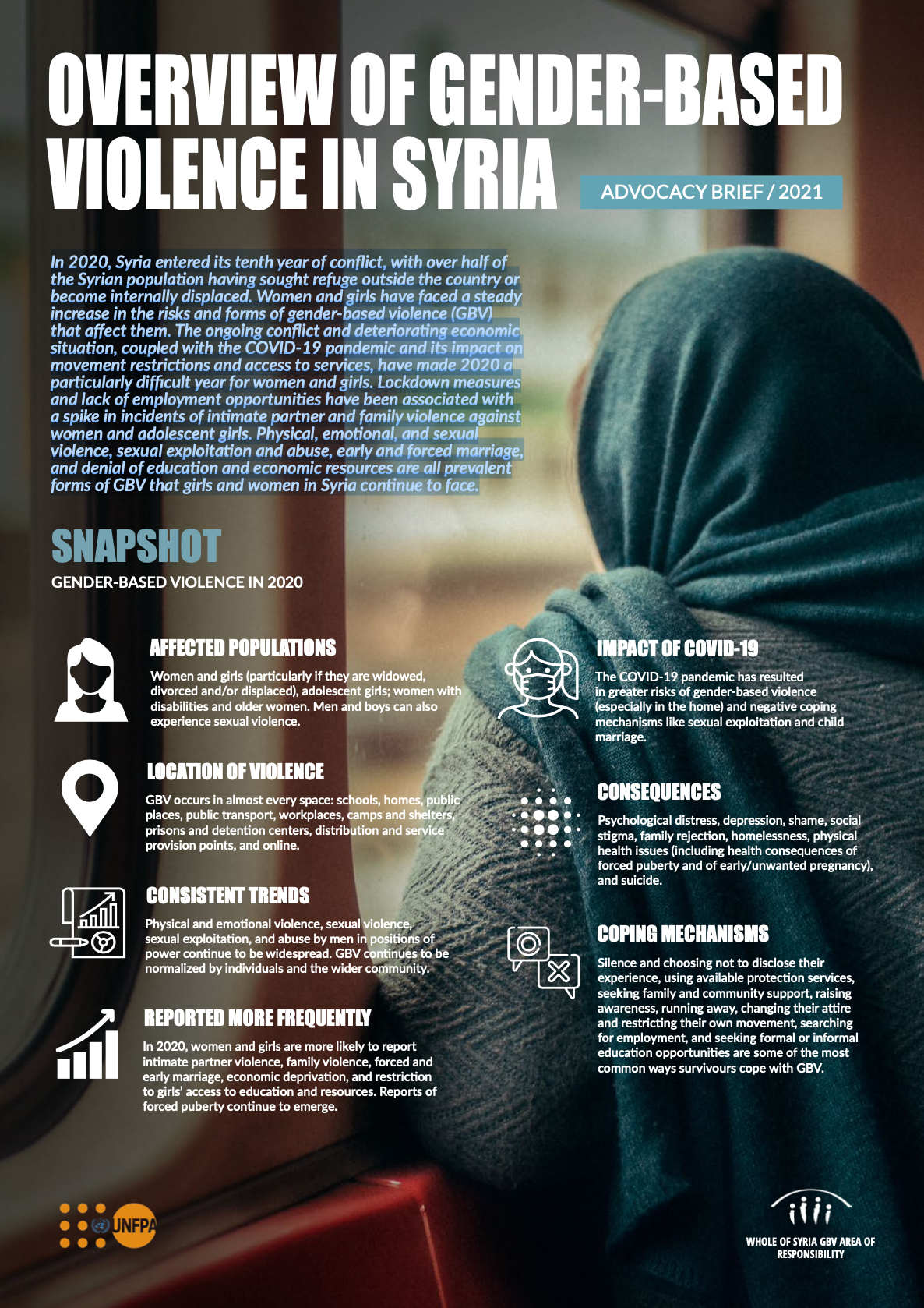
OVERVIEW OF GENDER-BASED VIOLENCE IN SYRIA - Advocacy brief 2021
In 2020, the conflict in Syria has entered its tenth year. With more than half of Syria's population forced to seek asylum outside the country or be displaced within the country, women and girls faced a steady increase in the risks and forms of gender-based violence that affect them. The ongoing conflict, the deteriorating economic situation and the effects of the outbreak of the Covid-19 pandemic and the accompanying measures, such as movement restrictions and access to services, have made 2020 a difficult year, especially for women and girls.
Lockdown measures and lack of employment opportunities have been associated with a spike in incidents of intimate partner and family violence against women and adolescent girls. Physical, emotional, and sexual violence, sexual exploitation and abuse, early and forced marriage, and denial of education and economic resources are all prevalent forms of GBV that girls and women in Syria continue to face.
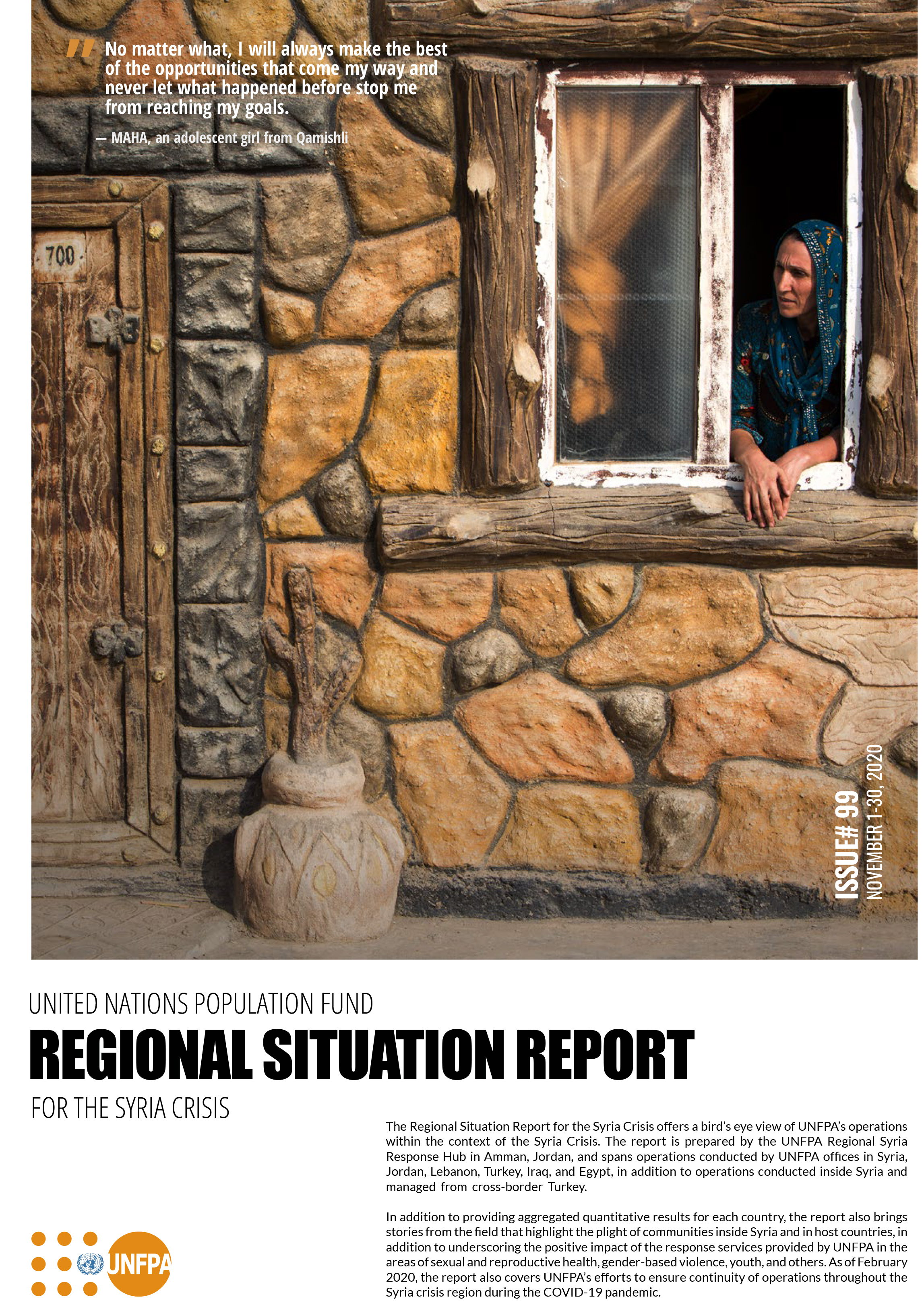
UNFPA Regional Situation Report for the Syria Crisis - November 2020
Within the Syria crisis region, which spans the Whole of Syria, Turkey, Lebanon, Jordan, Iraq and Egypt, there have been a total of 124,553,69 confirmed cases of COVID-19 as of November 30, 2020. The highest number of confirmed cases came from Turkey (1,431,648), followed by Iraq (552,549), Jordan (219,430), Lebanon (127,944), Egypt (115,911), and Syria (7,887).
Despite the relatively low number of confirmed cases in Syria, it is worth noting that the capacity for testing throughout the country remains extremely limited. Moreover, the steadily rising number of infections clearly shows that the epidemiological situation in the country has rapidly evolved and remains extremely volatile. According to the Syrian Ministry of Health (MoH), infections among healthcare workers in Syria continue to rise, which highlights the potential for the nation’s already fragile and overstretched healthcare capacity to be further compromised. Humanitarian actors continue to receive reports that healthcare workers in some areas do not have sufficient personal protective equipment (PPE).
Meanwhile, the pandemic continues to exacerbate an ongoing economic crisis that has substantially increased humanitarian needs. An inter-agency socio-economic impact assessment of COVID-19 noted a major economic downturn and significant social impacts, amplified by the ongoing financial crisis in Lebanon. An estimated that 200,000 - 300,000 jobs were permanently lost, while the informal sector and businesses have been heavily impacted, with 15 percent of small and medium sized businesses reporting permanent closure. This is particularly relevant given that recent estimates suggest that 22.4 percent of households in Syria are headed by women, up from 4.4 percent in 2009. This means that over 4.5 million people are currently living in female-headed households (FHH), representing a highly vulnerable portion of the population.
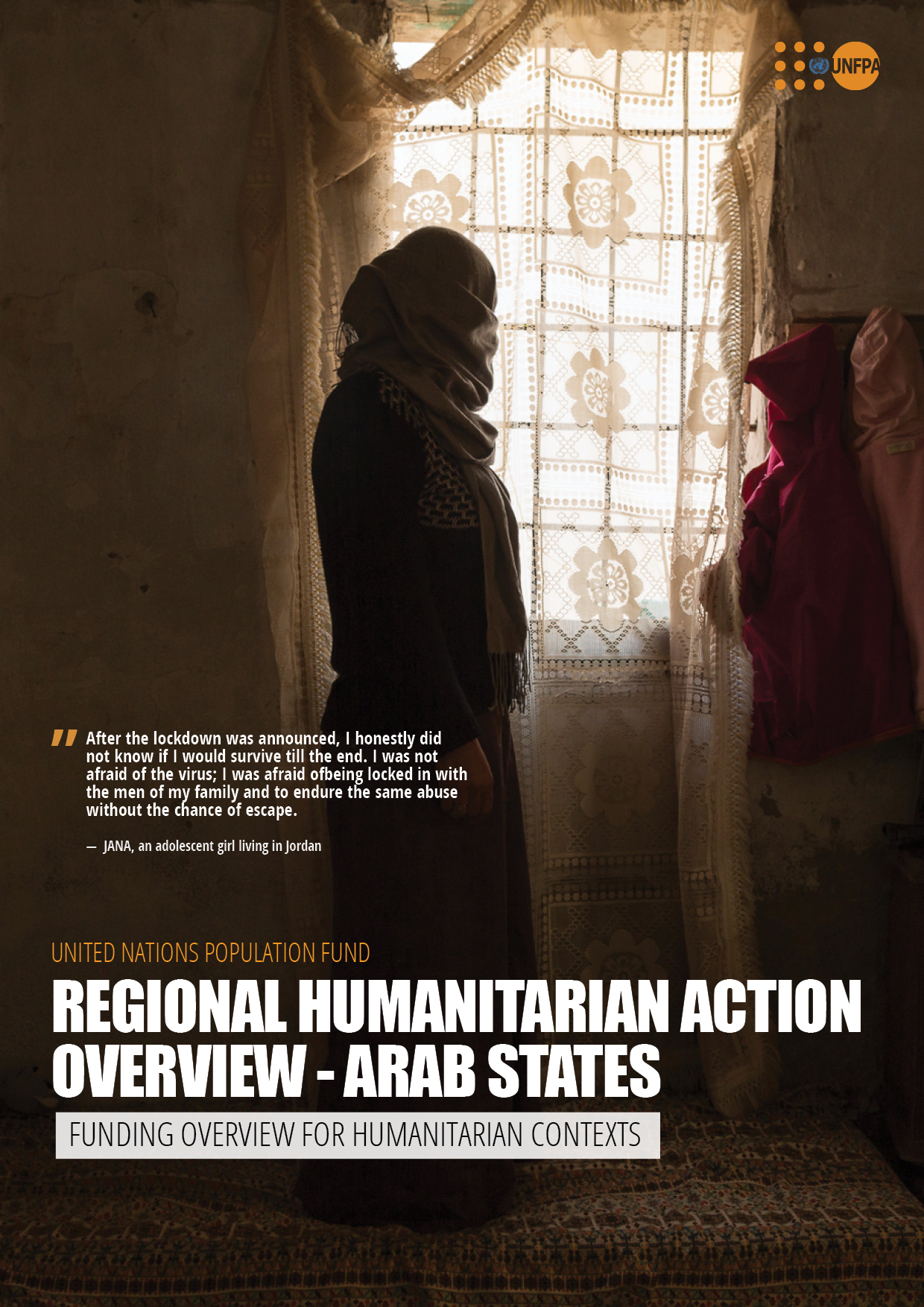
REGIONAL HUMANITARIAN ACTION OVERVIEW - ARAB STATES: FUNDING OVERVIEW FOR HUMANITARIAN CONTEXTS
The Arab Region is witnessing compounded humanitarian crises, the effects of which have become catastrophic. Some of these are protracted, as in Yemen, Syria, and Libya, while others have become forgotten, as in Somalia and the Palestinian territories. Meanwhile, the COVID-19 pandemic has pushed even more people behind safety lines to face gender-based violence and harmful practices against women and girls, who consistently bear the brunt of the challenges resulting from these crises.

UNFPA Regional Situation Report for the Syria Crisis - October 2020
The Regional Situation Report for the Syria Crisis offers a bird’s eye view of UNFPA’s operations within the context of the Syria Crisis. The report is prepared by the UNFPA Regional Syria Response Hub in Amman, Jordan, and spans operations conducted by UNFPA offices in Syria, Jordan, Lebanon, Turkey, Iraq, and Egypt, in addition to operations conducted inside Syria and managed from cross-border Turkey.
In addition to providing aggregated quantitative results for each country, the report also brings stories from the field that highlight the plight of communities inside Syria and in host countries, in addition to underscoring the positive impact of the response services provided by UNFPA in the areas of sexual and reproductive health, gender-based violence, youth, and others. As of February 2020, the report also covers UNFPA’s efforts to ensure continuity of operations throughout the Syria crisis region during the COVID-19 pandemic.
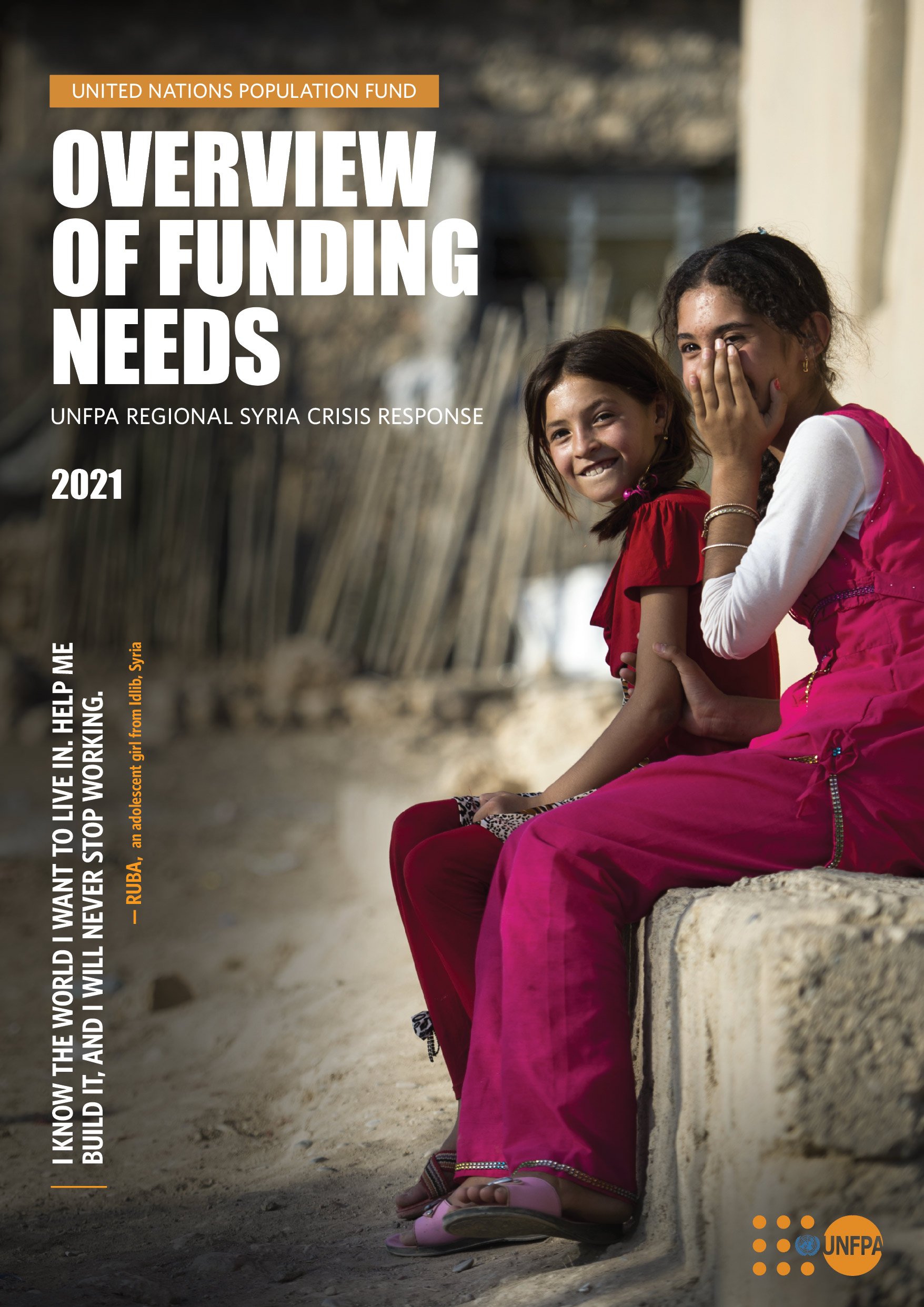
OVERVIEW OF FUNDING NEEDS UNFPA REGIONAL SYRIA CRISIS RESPONSE - 21
The crisis in Syria has been globally recognized as one of the worst humanitarian crises of our time. As of late 2020, more than 11.7 million people inside Syria are in need, while close to 5.7 million have taken refuge in neighbouring countries throughout the region. They continue to suffer the effects of a decade of conflict, including disruption of community networks, safety nets, and rule of law. Even as some parts of Syria stabilise, the crisis has passed a tipping point in terms of generational change, and its effects will undoubtedly continue for many years to come. This is particularly true in the case of women and girls due to the deep- rooted complexity of the issues they continue to face on a daily basis.